All cats are created equal, right? Wrong. Senior cats have special dietary needs, different from adult cats and kittens. Their bodies require different things. Thanks to advances in veterinary care and improved nutrition, cats are living longer than ever, giving those of us who love them many more years of their affection and warm companionship.
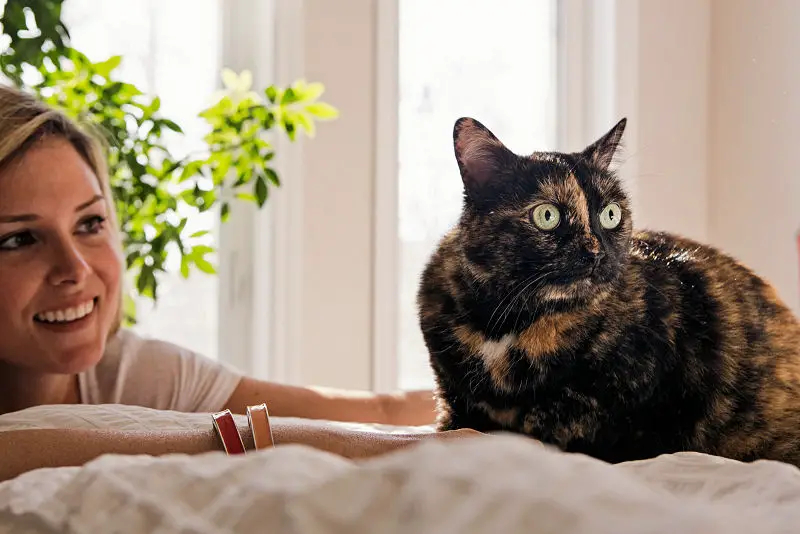
This longevity, however, means that senior cats, just like their aging human companions, become more vulnerable to a variety of health issues and ailments: weight gain and decreased mobility; heart, kidney, and liver diseases; diabetes; dental problems and periodontal disease; behavioral problems and cancer.
Unlike humans, cats can begin to approach their senior years as early as 7 years old. Factors that have an impact on how individual cats age include body weight, nutrition, environment, and overall health. First off, how do you know when your cat reaches “senior status”? You might see a sprinkling of gray on her chin; a small cloud forming over once-clear eyes. Perhaps there’s a touch of stiffness in what was once a frisky gait. Any of these can be tell-tale signs that your fuzzy feline friend is entering her “golden” years.
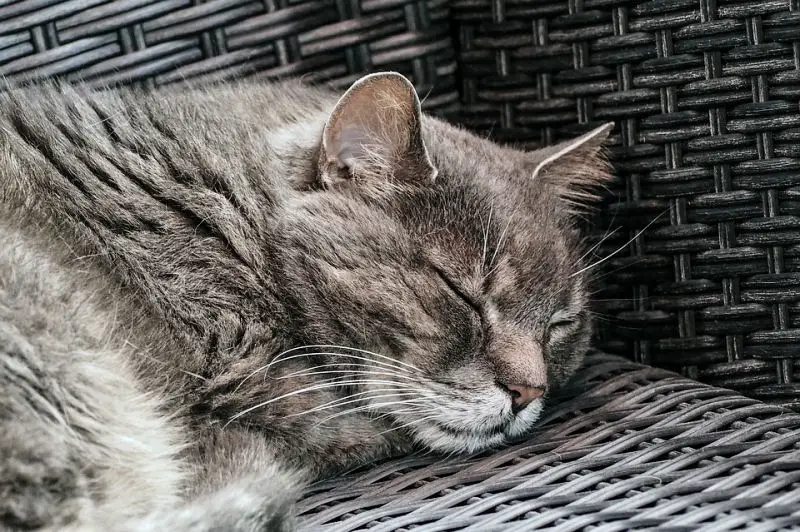
The old saying that one year in a cat’s life is equal to seven “human” years isn’t entirely accurate. Pets mature quickly during the first two years of life, level out for their middle years, and then begin to age more rapidly once more during the final third of their life span.
Aging can cause natural changes in your cat’s body functioning, which as a pet parent, may require you to adjust their diet, care, and nutrition accordingly. Many pet parents may experience denial not want to acknowledge that their cat is aging, but supporting your cat’s health as they enter their golden years can actually help prevent, manage several common health conditions to keep your feline friend healthy for many years to come.
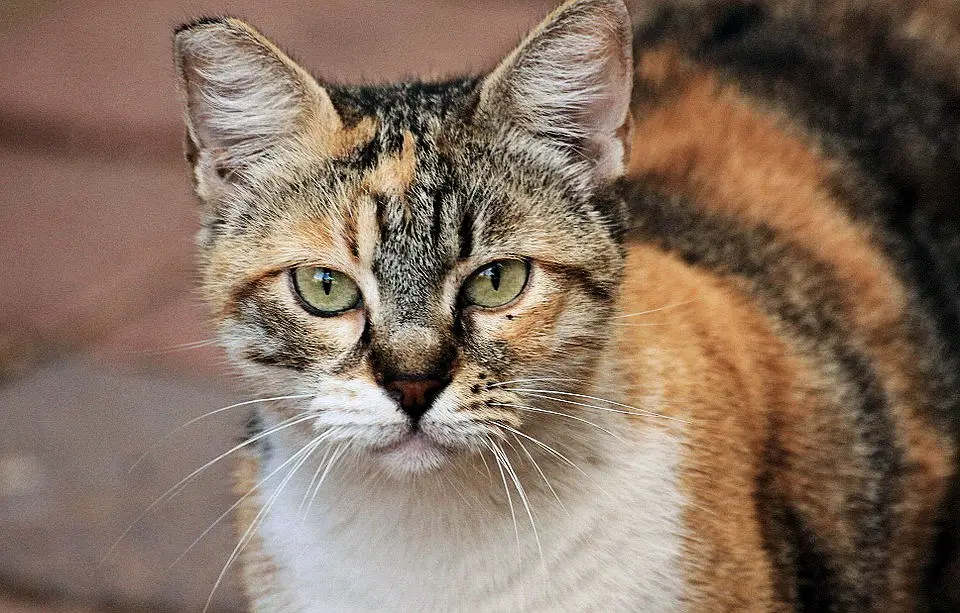
An important but often forgotten aspect is to ensure easy access to their litter box.
Ever Considered Using A Cat Litter Mat
The cat litter mat is placed underneath your feline’s litter box. Although many people use a cut square of a regular mat, these end up looking unsightly and ratty when they start fraying. Furthermore, these can snag on the claws of your cat. There are many benefits making it worthwhile investing in this useful item. Check out this summary of Best Cat Litter Mats by Cindy Grant, founder of NolongerWild.com.
But by the time they reach 11 years of age, weight loss becomes an even bigger concern. The 11-plus years are especially difficult for cats because their sense of smell and taste tend to diminish at this time, which in turn has an adverse affect on their interest in food. The power to absorb key nutritional elements and digest fat begins to declines, making eating itself less efficient.
[clickToTweet tweet=”5 Health & Nutrition Tips for Senior Cats” quote=”5 Health & Nutrition Tips for Senior Cats”]
We asked our go-to expert Gillian Ridgeway {Nutram OTC Pet Wellness Expert} for her advice on key things to look for in senior cats. Here are her 5 recommendations and some tips to help cat owners improve the quality of life for their beloved senior cats:
-
Bladder Issues
Urinary incontinence, which is the loss of bladder control, and kidney disease are not uncommon in cats as they mature through life. You may notice your cat losing weight and drinking more water than normal or making frequent trips to the litter box, which are all signs of a possible bladder condition. To help prevent bladder issues, select a diet that includes specific ingredients for your cat. Incorporating a diet with ingredients such as cranberries, a natural acidifier, and celery seeds, will help sustain healthy fluid levels, and work to maintain proper pH and moderate ash levels, supporting a healthy bladder.
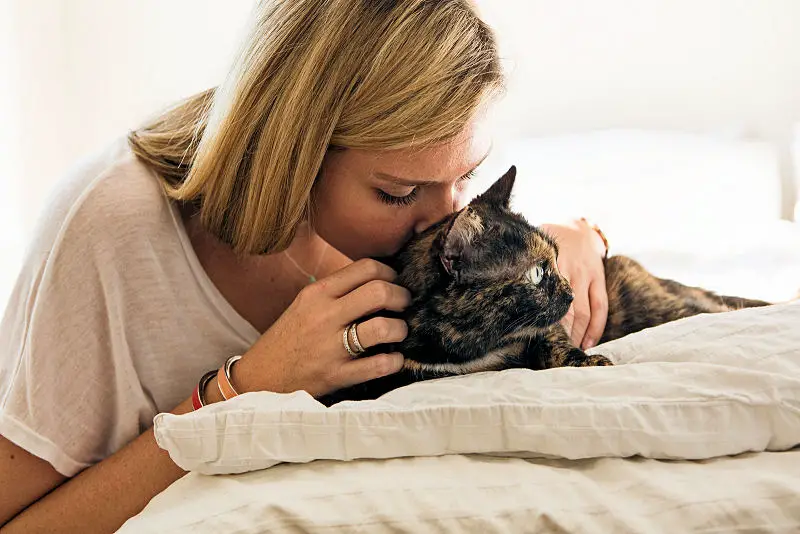
*TIP: Cats have different dietary requirements than dogs, so if you share your home with both, keep Fido’s dish out of reach.
-
Decreased Mobility
Decreased mobility is a common concern with senior cats, and is especially important if their water intake has increased. It is important to help your cat have easy access to their litter box. If you start to see mobility issues arise, make sure the litter box is very accessible.
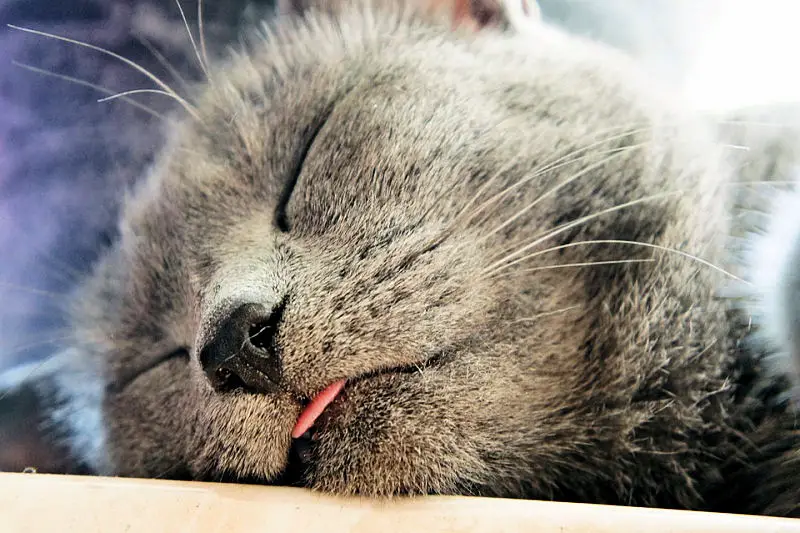
*TIP: Use a ramp or lower the litter box to allow easy access to your cat. If you have stairs in the home, consider putting a litter box on each floor.
-
Weight Fluctuation
Obesity is often on the rise in the senior cats. This can be due to decreased mobility, decreased metabolism, or lack of appropriate exercise. Proper diet is imperative for weight control. Often a diet higher in fibre will help keep your pet feeling full, while helping to push food through the intestinal system and prolong satiety, crucial for weight management.
* TIP: Look for ingredients like chicory root, which promotes the growth of natural intestinal bacteria. Ingredients such as pumpkin are rich in fibre, which also assists with the movement of food through the digestive system.
To prevent obesity, you should also entertain and mentally stimulate your furbaby regularly with interactive cat toys or a nice stroll on an appropriate cat harness
4. Furballs
Grooming is an important part of each cat’s day. However, you may notice that their ability to groom themselves wanes as the years move forward. Less frequent grooming can result in increased shedding, causing problems such as hairballs, which can be quite serious if left unattended. Make sure your cat food is formulated to help with the hairball situation if your pet is susceptible to them. Look for ingredients rich in Omega-3 fatty acids to support your cat’s coat as well as natural fibers to help with gut motility and facilitate hairball elimination.
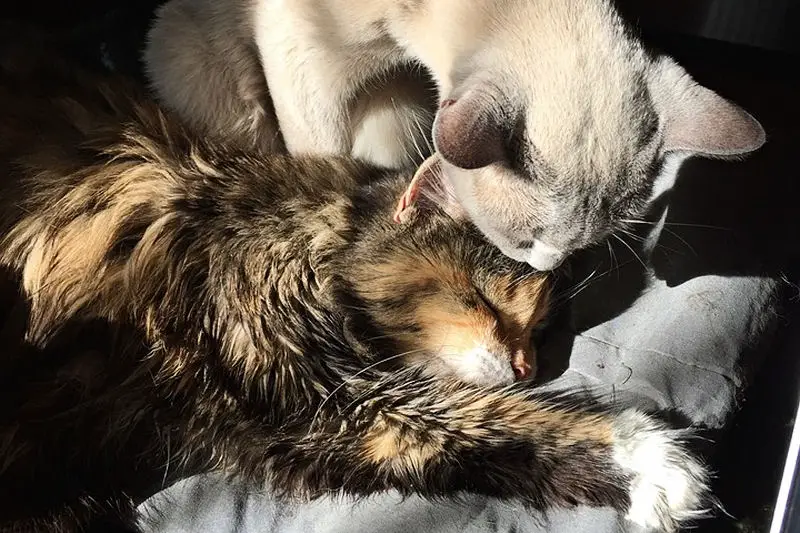
-
Stress
Believe it or not, stress can begin to affect your beloved cat and manifest in various ways. The cat that normally loves new people may start to seek out quiet spots. Cats love routine so it’s best to keep their living situation and routine the as consistent as possible. As cats age, they may begin to experience changes in their eyesight or hearing which makes them less able to cope with new situations.
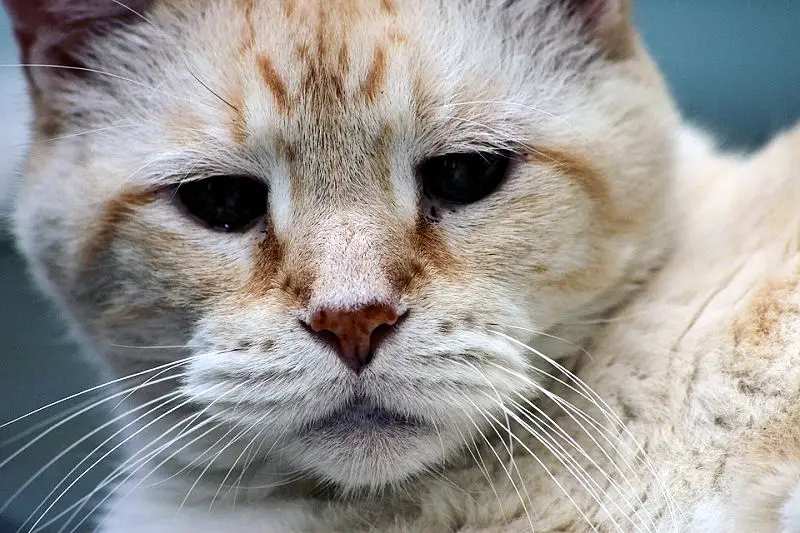
*TIP: If you require a house sitter or plan a holiday, it might be best to ask a friend to house sit daily rather than bringing your cat to a boarding facility, removing them from their home turf.
In addition to looking out for these five signs in your senior cat, you should also do a mini physical exam each week while grooming your cat. While grooming, check for lumps and bumps, and make sure your cat has good dental hygiene. Regular health checks and Veterinary appointments are necessary every 6 months to help ensure that your feline friend is on track.
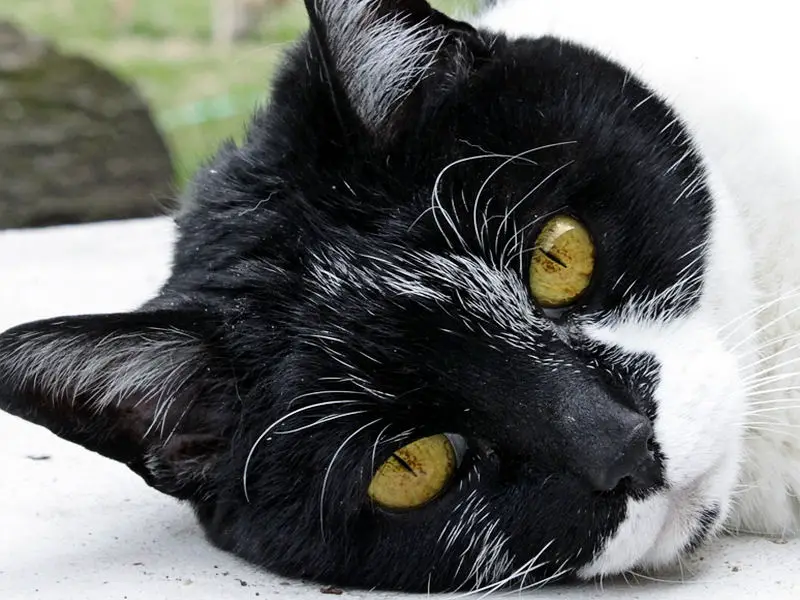
Prevention is key to success with your senior cat. While they may have been on a specific diet for the first part of life, it may be time to re-evaluate and make a switch to a recipe appropriate for their health conditions and life stage. A proper diet that’s formulated with their health in mind and geared towards specific issues will certainly help keep your pet happy and healthy over their lifetime.
If you have a new kitten, you might want to read our post on nutrition and health tips for kittens.
Drop us a comment and tell us about a special senior cat that’s enriched your life. =^..^=
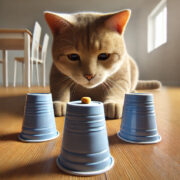
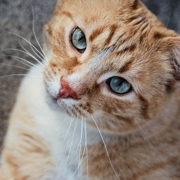
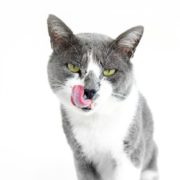

I currently have 14yr old female which I have had since she was 5wks old and over the last few months her hearing is getting worse she is stiffer after waking from her naps but she still has a little spring in her step and a little twinkle in her eye not as often as she did but it is still there and through Gizzmo and one of my previous cats Spike who sadly passed away at 18yrs old who I had from 4wks old (i found him in a bush) I will definitely be adopting an elderly cat 10+ yrs in the future
My cat, Henrietta, is 21 years and 6 months old so I recognise the things that you highlight. She has dishes in the kitchen and on the landing upstairs with fresh water and food. I recently got her a bigger litter tray, which she is appreciating, as it enables her to move about within it easier now that her sight and hearing are not so good. Despite being on medication for an overactive thyroid and blood pressure her routine blood tests for kidney function and thyroid levels (from the vet) are maintained and all results are good. She has a small dose of metacam for her stiff joints and really enjoys Reiki which she gets on tap as I am a Reiki Practitioner 🙂 She still toddles out in the garden but only when I’m around so I can check she is OK and she still looks after her own coat although I also groom her now and again and trim her claws now that she plays out less. We use a combination of senior and normal food – she likes variety and is doing well with this diet. She lost alot of weight about 2 years ago when she was first diagnosed with the overactive thyroid as she took a serious reaction to the first type of medication she was on. Her wight has since climbed back to a healthy 3.2kg and the medication she is on suits her.
This information has been very helpful. I have had many many cats are they seem to age at different rates so I didn’t realize that they actually start to become senior around 7 or so. I have an amazing little girl with unbelievable energy. She just turned 10 and lost a bunch of weight. Her blood tests were normal. I kept thinking there was something wrong but now I realize that i might just be her age. I will continue to have my vet monitor but I’m glad that it might not be as bad as I thought.
Really like this post. One trend I’ve noticed when my cats have gotten older is a lack of awareness of where they are in the house, or where I am in relation to where they are. They’ll often meow very loudly almost to call for me — and if i respond, cat comes running :D. None of them ever did this until they were older than 7 or 8…
Thanks for shared!
I recently got her a bigger litter tray, which she is appreciating, as it enables her to move about within it easier now that her sight and hearing are not so good. Despite being on medication for an overactive thyroid and blood pressure her routine blood tests for kidney function and thyroid levels (from the vet) are maintained and all results are good
I had 2 old girls (with many others before & since), Mayhem & Chaos. The “old time vet” said “keep their teeth up & they will live a long life. He was right & he did the teeth cleaning along with the ear cleanings & clipping nails & the exam, NOT LIKE TODAY. Mayhem lived to 14 or 15 but was overweight a lot of the time though the huntress…how that big girl got birds I have no idea…& she brought them home alive to fly around the house! She had some issues, teeth went bad on her, several pulled & had other internal issues. After $1k in a short time 15+ years ago she came home after a day or 2 at the vets & tests this & that before, ate like a starving feral & died that night…think it was renal failure. Everyone loved her as the practice was small & many took care of her & she was a rub my belly kind of Tortie.
Chaos lived until 19, almost 20. The last 3 or 4 years we would do our late night walks (no leash) unless really raining or snowing…an hour or 2 at about Midnight! Just a harness with a blinker light so I knew where she was, better than a dog as she could climb trees! I had to demand the teeth cleaning as the kindly old vet sold the practice & prices went up, doctors got not so good. Anyway, her teeth were really good but she got old & some renal issues again & I was not about to put her through the needles & all that Mayhem went through. She slept on a pillow on my desk or with us & always wanted to go for her late night adventure. I was sick the last week & she was straining to go out but I could not get out. However I “felt Ihad to take her, she was waiting for that 1 last walk” & the last time she did not go as far, deep snow closed a steep bank but we got a nice walk & ride & went to lots of old places & it was something I remember years later. She passed that night but was spared needles & what have you for another month of life if that. Moral, “keep their teeth up”…every 6 months or so they got a cleaning & a going over; give a kitty buffet though a lot may be thrown away & show them love esp. in the end days. She was a farm cat, apartment cat, warehouse cat etc…they both were & they were happy, healthy for a long time, loved ever so much & the best friends you could want! JK